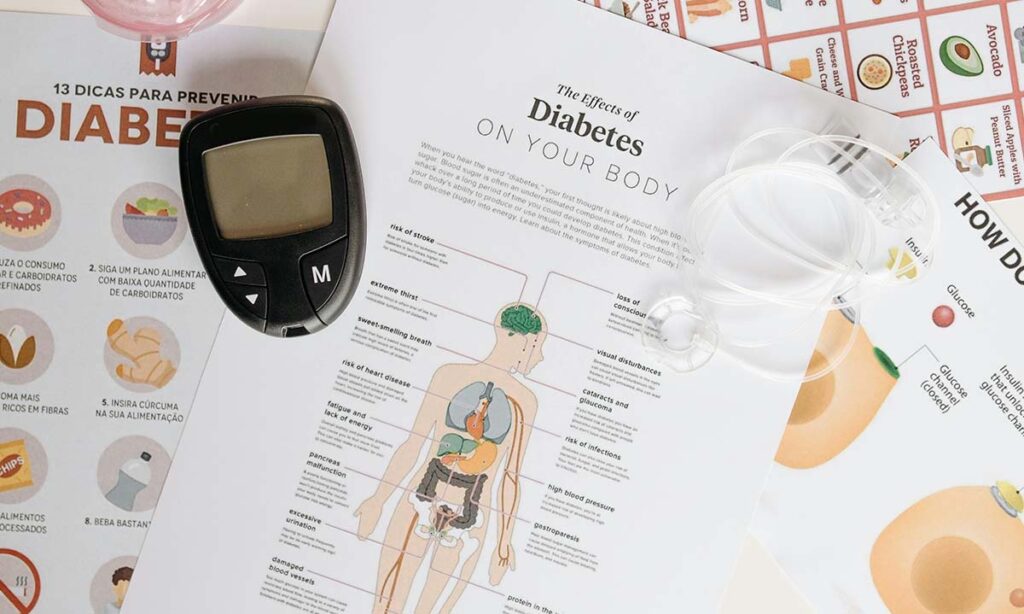Type 2 diabetes predominantly impacts individuals who are overweight and over the age of 45. However, as obesity rates rise, we are increasingly witnessing this condition in younger populations, including children as young as 10. This shift from mainly adult cases to affecting younger individuals presents significant public health challenges.
Understanding Diabetes Development
In type 2 diabetes, the body confronts two primary issues: inadequate insulin production and increased insulin resistance. Although the pancreas does produce some insulin, it may not be sufficient to maintain healthy blood sugar levels, leading to hyperglycemia (elevated blood sugar). If not properly managed, this can result in various complications.
Management Options
Effectively managing type 2 diabetes involves several treatment options. Metformin is commonly prescribed as the first-line medication, as it helps lower insulin resistance and stabilize blood sugar levels. Other medications, including sulfonylureas and meglitinides, stimulate the pancreas to produce more insulin, though they may carry side effects like hypoglycemia.
Combating Insulin Resistance
Making lifestyle adjustments is vital for addressing insulin resistance. Strategies such as losing weight and engaging in regular physical activity can greatly enhance insulin sensitivity. Additionally, medications like biguanides and thiazolidinediones can further improve insulin action.
Chronic Nature of Type 2 Diabetes
Type 2 diabetes is a long-term condition that affects the body’s ability to process blood sugar (glucose). Its prevalence is rising, often linked to obesity and a lack of physical activity.
Causes and Risk Factors
Individuals with type 2 diabetes commonly experience insulin resistance, where their cells do not respond adequately to insulin. Over time, the pancreas has difficulty producing enough insulin, leading to elevated blood sugar levels. While obesity is a significant risk factor, the condition can also occur in individuals who are not overweight.
Symptoms and Complications
In the early stages, many individuals with type 2 diabetes may not show any symptoms, which can lead to long-term complications. Common signs include excessive thirst, frequent urination, and fatigue. Without proper management, diabetes can lead to serious health complications such as heart disease, kidney dysfunction, and nerve damage.
Treatment Options
To effectively manage blood sugar levels, a variety of medications are available:
- Metformin: Lowers glucose production in the liver and enhances insulin sensitivity.
- Sulfonylureas: Promote insulin production in the pancreas, thus lowering blood sugar levels.
- Thiazolidinediones: Improve insulin sensitivity in muscle and fat tissues.
In some instances, insulin therapy may be necessary to maintain proper blood sugar levels.
Importance of Lifestyle Changes
Making healthy lifestyle choices is crucial for managing type 2 diabetes. Regular exercise and a balanced diet can assist in weight management and improve overall health. Monitoring blood sugar levels is also essential to avoid complications.
Benefits of Lifestyle Changes
- Weight Loss: Significant weight loss can reduce the likelihood of developing diabetes. Even a modest loss of 1 kg can decrease diabetes risk by 33% over a decade.
- Lifestyle Interventions: Engaging in regular physical activity and making dietary changes can lessen the need for medications and improve blood sugar regulation.
- Support for Patients: Healthcare providers should encourage weight loss and help patients identify triggers for overeating. Continuous support is key to maintaining motivation.
Treatment Strategies
- Polypharmacy: As type 2 diabetes advances, patients may require multiple medications targeting various aspects of the disease. Healthcare providers should educate patients about their medications and assist them in navigating complex regimens.
- Communication: Effective communication between patients and healthcare providers is vital for successful diabetes management, particularly for those from diverse linguistic backgrounds.
Conclusion
Type 2 diabetes is a progressive condition that often necessitates insulin and multiple medications over time. Healthcare providers play a critical role in educating patients about their condition, the significance of their medications, and healthy lifestyle choices essential for effective management. Understanding type 2 diabetes is fundamental for successful management. Early detection and intervention can help individuals lead healthier lives. If you suspect you may have diabetes, it’s important to consult a healthcare professional for a proper diagnosis and treatment plan.
Disclaimer: The information provided on this website, updatenow360.com, is for informational purposes only. Always consult a qualified healthcare professional for advice regarding your health and medical conditions.

